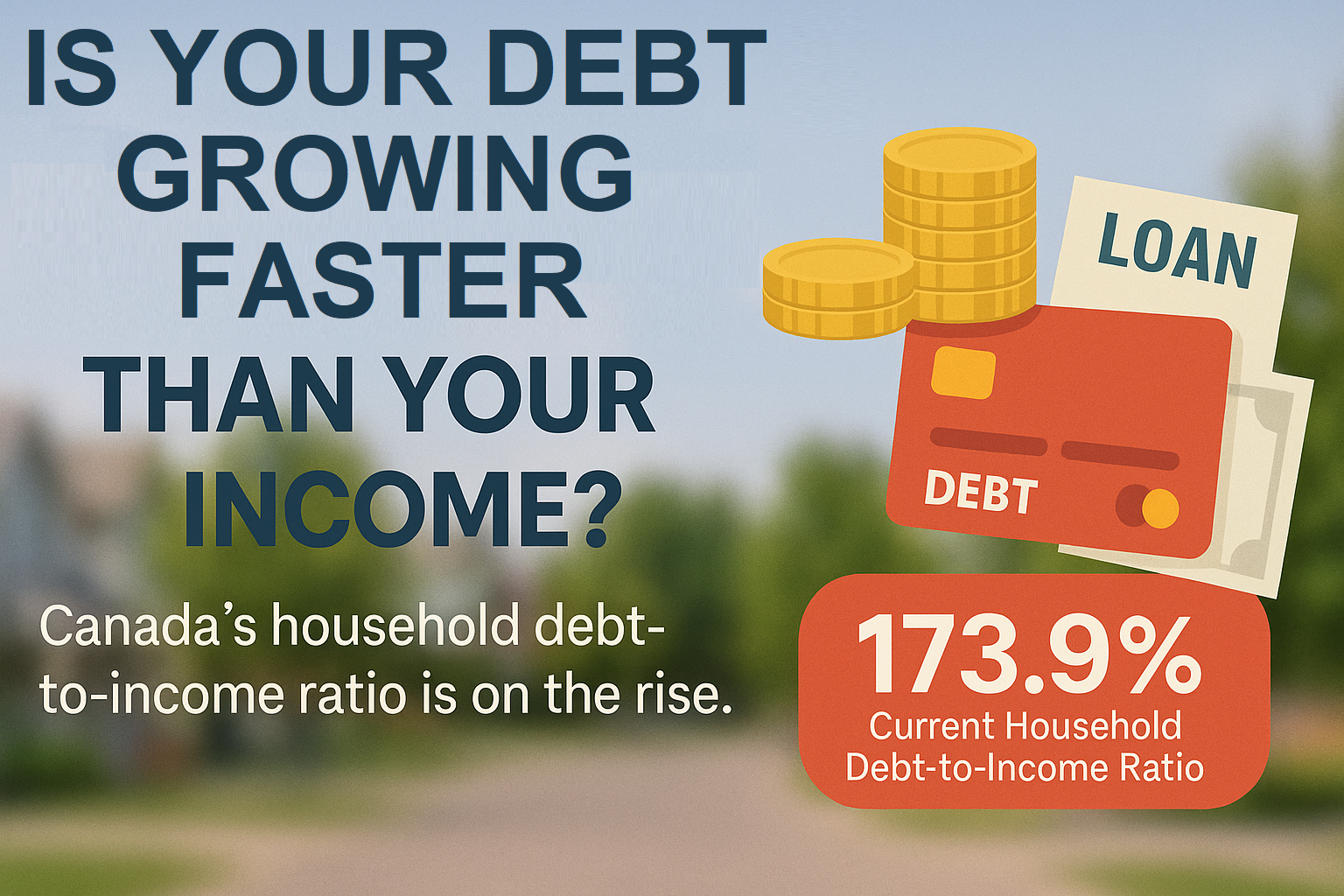
Is Your Debt Growing Faster Than Your Income? Here’s What That Means-
June 20, 2025 | Posted by: Keith Leighton

Is Your Debt Growing Faster Than Your Income?
Here’s What That Means
After a few quarters of improvement, Canadian households are returning to an old and risky habit: accumulating debt faster than their incomes are growing. According to the latest Statistics Canada data, the household debt-to-income ratio increased to 173.9% in the first quarter of 2025. This may sound technical, but it has real implications for anyone who owns a home or is planning to buy one.
What Is the Debt-to-Income Ratio?
The debt-to-income ratio tells us how much debt the average household owes compared to its after-tax income. A ratio of 173.9% means Canadians now owe $1.74 for every $1.00 they earn. This is a sign of growing financial vulnerability.
Here is a quick breakdown:
- - Below 100% is considered low risk.
- - Between 100% and 150% is elevated but usually manageable.
- - Above 150% is high risk and means households are financially stretched.
The national average is well above the high-risk threshold. While not every household is in trouble, those carrying large amounts of debt are becoming more exposed to economic shocks.
Why Is the Ratio Climbing Again?
Part of the reason is the Bank of Canada's interest rate cuts in 2024. These cuts offered short-term relief by reducing monthly payments and freeing up cash flow. However, lower borrowing costs also encouraged people to take on more debt.
Instead of using the opportunity to pay down existing loans, many households increased their borrowing. As a result, the debt-to-income ratio has now risen for two consecutive quarters.
Why This Matters to Homeowners and Buyers
If you have a mortgage or are considering buying a home, this trend has several important implications.
- Rising Debt Reduces Financial Flexibility If interest rates rise again or if household income fails to grow, families with high debt loads may find it harder to manage their finances. This can lead to difficult choices such as cutting expenses, delaying investments, or refinancing under less favorable conditions.
- Low Interest Rates Can Be Misleading While today’s rates may seem attractive, they can lead to overborrowing. It is important to think beyond the monthly payment. Ask yourself whether you could still afford your mortgage if rates increase by a couple of percentage points.
- Lenders Are Monitoring the Situation Mortgage lenders are very aware of national debt trends. Higher household debt can result in tighter lending rules, even if your personal finances are in good shape. This could affect how much you can borrow or what rate you receive.
What You Can Do
-
- - Think Long Term: Buying a home is more than a short-term decision. Make sure your financial plan works over the next five to ten years, not just today.
- - Speak With a Mortgage Broker: Getting advice tailored to your situation can help you make smart choices. We can help you understand your options, whether you are refinancing, upsizing, or entering the market for the first time.
Final Thoughts
Canada's rising household debt-to-income ratio is a warning sign. It does not mean disaster is around the corner, but it does call for caution and planning. With the right guidance and a thoughtful approach, you can make confident, informed decisions about your mortgage and your future.
If you would like to review your mortgage options or discuss your financial goals, we are here to help. Reach out any time for a free, no-obligation consultation with your Ideal Mortgage broker.
